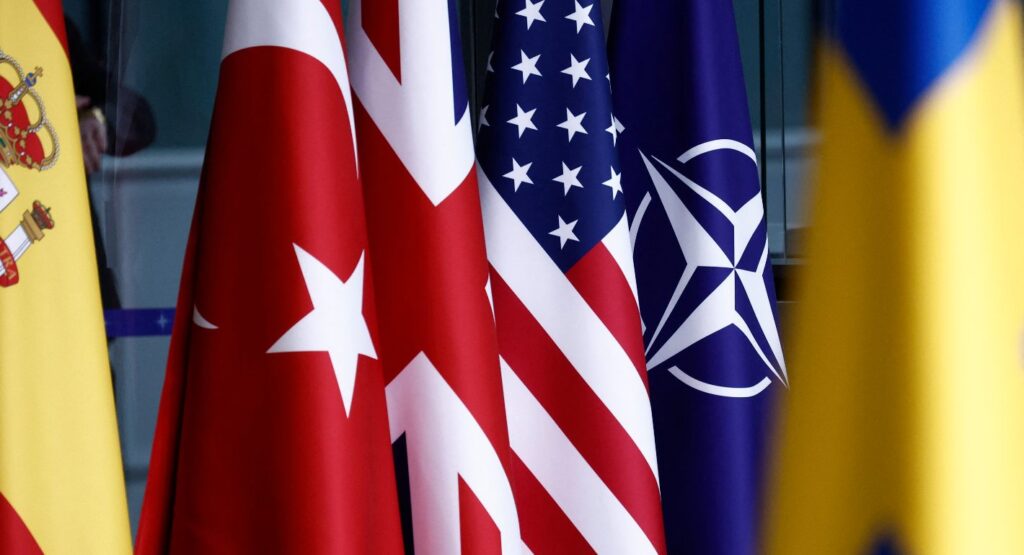This month marks the first year of Turkey’s current five-year parliament. When Recep Tayyip Erdogan was elected to a third term as president on May 28, 2023, with 52% of the vote, his victory was seen as proof of his control over domestic politics despite a severe economic crisis. His international role seemed permanent.
Currently, sharp disagreements with the West over the rule of law, the future of Cyprus, Israel and Hamas, and Russia and Ukraine have reached a near stalemate that requires a new reading of Europe’s perception of Ankara’s positions over the past year.
On the economic front, progress has been made since misguided economic policies, especially interest rate policies, were significantly reversed in mid-2023. To date, the Western financial community has praised Turkey’s economic policies, foreign exchange reserves have increased, and political commitment to controlling inflation appears to be maintained. However, Western financial communities and Turkish analysts continue to raise the issue of the rapid deterioration of the rule of law structure, which is outside the jurisdiction of the Ministry of Economy and Finance. Investors, fund managers, and bankers need a reliable and predictable judicial system to restore full confidence in Turkey.
At home, the enthusiasm of May 2023 has almost dissipated, and the local elections in March 2024 have seen the presidential coalition suffer major setbacks. The president’s social project has not been a success: his motto “raising a godly generation” has not been well received, and while urban residents (77% of the total) want to be masters of their own lifestyle, they are deeply resentful of the lack of a free media and unfair court decisions.
In terms of foreign policy, the ambitions of the Turkish leadership have been thwarted by various factors. First, Russia’s invasion of Ukraine in 2022, Hamas’ attack on Israel and Israel’s retaliation against Gaza in 2023, and Iran’s unprecedented missile attack on Israel have dramatically altered the hierarchy of global crises. It is these crises, not Turkey, that dominate the foreign policy agenda of Western countries.
Second, Turkey’s foreign policy goals are hampered by contradictions and ambiguities: expanding ties with Russia is incompatible with NATO membership; efforts to repair ties with Israel coexist with strong support for Hamas; and its nominal desire to become an EU member state is at odds with an openly authoritarian system of governance.
Third, the Turkish president’s penchant for headline-grabbing actions has alienated him from the West and hindered his ability to mediate major conflicts. These include his national welcome for the Hamas leadership on April 20, his relentless hostility towards Osman Kavala (who was denied a review on May 15) for contradicting a European Court of Human Rights ruling based on false evidence, his fierce condemnation of Israel’s intentions to target Anatolia on May 15, and his widespread condemnation of Kurdish leaders on May 17.
In a rare bit of positive news, the highest level political dialogue with Greece continues, albeit limited in scope.
Overall, Turkey’s standing on the international stage is in decline. On April 17 and 18, due to a confluence of international crises, the European Council spent very little time on a special report on Turkey, issuing minimalist conclusions. While certainly not a particularly polished diplomatic document, it infuriated both Turkish officials and liberal thinkers, and was oddly consistent in ignoring the issue of the rule of law.
A meeting with the US President scheduled for May 9 has been “postponed” as it appears headed towards a clash of irreconcilable priorities. The G7 meeting under the Italian presidency from June 13-15 will feature non-Western guests, mainly from Africa, but unofficial sources say Turkey will not be included.
The NATO summit in Washington DC from July 9-11 will be the first face-to-face meeting between President Erdogan and President Biden this year, assuming bilateral talks take place. The European Political Community summit near London on July 18 will inevitably focus on Ukraine, Moldova and Georgia, but could also provide an opportunity for Turkish leadership.
Assessing Turkey’s global standing from Brussels reveals a stark contrast between Ankara’s views and those of leaders in Berlin, London, Paris and Washington, D.C. The West has long been perplexed by Ankara’s foreign policy choices and their rapid fluctuations, while Turkey has long perceived hypocrisy in Western policies and a lack of strategic vision, especially in its EU positions.
The future of EU-Turkey relations is therefore precarious, especially since the European Parliament elections in June will focus on defending the rule of law in Europe, which is a cornerstone of the EU’s political agenda. In such a situation, it is impossible to remain silent about the rule of law in relations with Turkey, especially since Ankara boasts of a strategic partnership with Hungary, which is widely seen in the European Parliament as a threat to EU values.
Whether defense issues will remain a focal point in Turkey-U.S. relations remains an open question, and it is unclear whether a change in U.S. leadership in 2025 would benefit Turkey, given Turkey’s pro-Hamas policies and expanding ties with Russia.
Democratic values are under attack from within and without in the EU, the Council of Europe and NATO member states, but they will remain a core element of the treaties that founded these institutions, amid escalating wars of aggression and the rise of far-right ideology in Europe.


